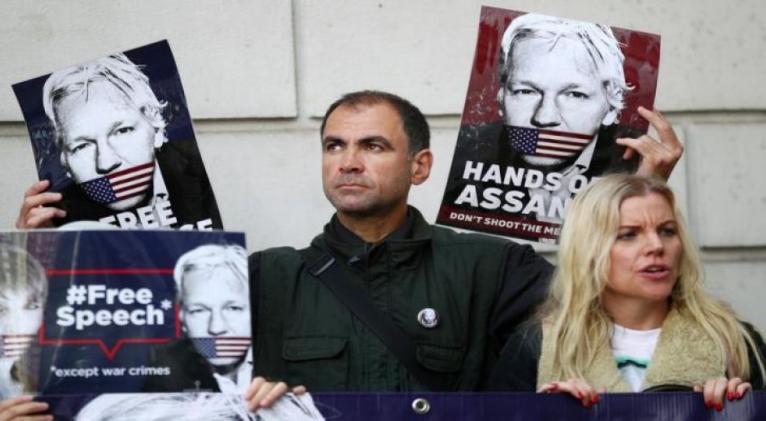WikiLeaks demands answers as Twitter account locked ahead of Assange extradition hearing
especiales

WikiLeaks editor-in-chief Kristinn Hrafnsson is seeking answers after the publisher’s official account was mysteriously locked, ahead of an extradition hearing for founder Julian Assange, who faces life in prison if he is sent to the United States.
Hrafnsson claimed the @wikileaks Twitter account had been locked “shortly before Assange extradition hearing” and for no apparent reason, in a post from his personal account on Monday. Lamenting he had been unable to “reach a human at Twitter” for answers, Hrafnsson tagged both the platform’s tech support and CEO Jack Dorsey.
The @wikileaks account’s most recent posts date back to February 9 and concern the dire precedent set by extraditing a publisher to stand trial on espionage charges. Assange’s extradition hearing in the UK, which a court ordered to be split into two parts, is set to begin this week, while the second half is scheduled for May.
The publisher’s lawyers have complained that access to their client is being restricted, and Assange was only recently moved from solitary confinement at Belmarsh prison after his fellow inmates staged a protest. The UN special rapporteur on torture Nils Melzer has accused the UK government of contributing to Assange’s “psychological torture” after examining the activist last year.
Assange supporters flocked to Hrafnsson’s post to pile on Dorsey and Twitter, demanding to know why Assange’s rights – as an individual on the Council of Europe’s protected list, as well as a journalist – were not being respected.
The WikiLeaks account isn’t the first associated with Assange to be mysteriously frozen – Assange’s personal account was deleted, undeleted, and finally suspended, where it remains, while he was still under siege at the Ecuadorian embassy in London.
There does seem to be a coordinated campaign to memory-hole the WikiLeaks founder, who has been pursued by the US government for over a decade for publishing its deepest darkest secrets and who faces a potential 175-year prison sentence if extradited from the UK.
Media reports on press freedom have conspicuously avoided all mention of the incarcerated publisher, while a “media freedom” conference held in London last year also avoided mention of the elephant in the room.
Assange was charged in May last year with 17 counts of espionage related to obtaining and disseminating classified information as well as with conspiracy to commit computer intrusion, all stemming from the publication of the documents that have become known as the Afghan and Iraq War Logs.
The court where his case will be heard is infamous for its 100 percent conviction rate on national security cases, meaning his extradition will almost certainly result in Assange spending the rest of his life in prison.
Meanwhile, the U.S. intelligence apparatus has been hard at work demonizing Assange and WikiLeaks, declaring “public disclosure organizations” like it to be as much of a threat to the US as terrorist groups and hostile governments, in its biannual National Counterintelligence Strategy Report, released last week.













Add new comment